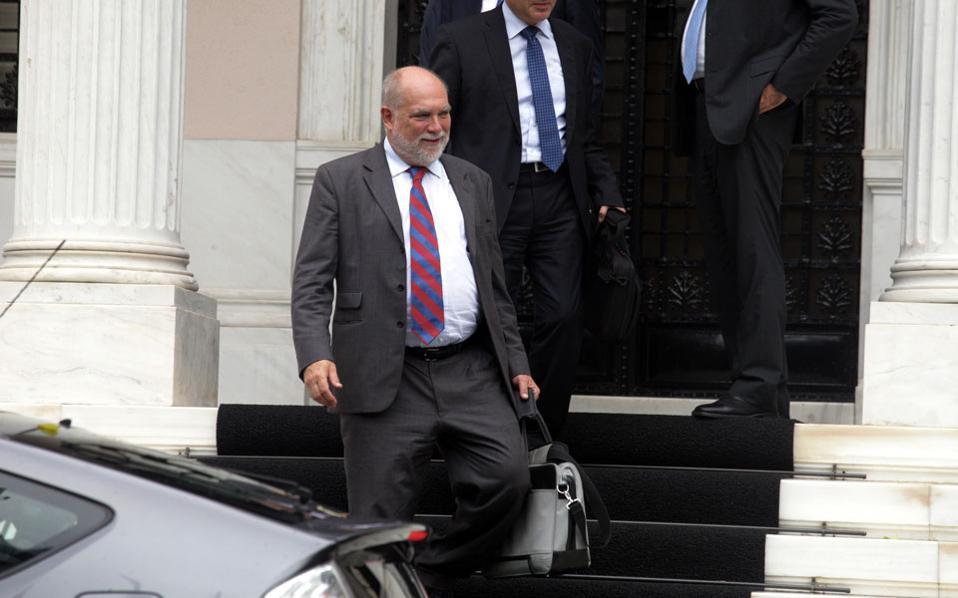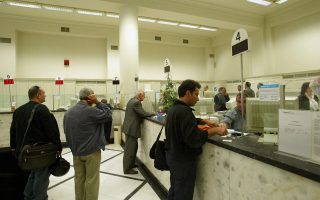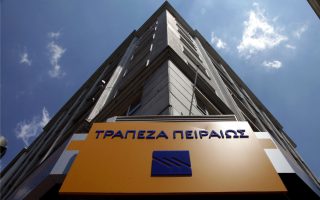Greek bank review holds key to 3-billion-euro payment, EU says

Greek Prime Minister Alexis Tsipras will need to enact banking-sector reforms to unlock 3 billion euros ($3.4 billion) in bailout funds set aside for Europe’s most indebted nation, according to Thomas Wieser, head of the Euro Working Group.
The money is slated to be paid out in two installments if Tsipras and euro-area nations can reach a deal on specific conditions for release, Wieser, who prepares euro-area finance ministers’ meetings, said in an interview on Monday in Brussels.
Those funds “are tied to two lists of milestones which have to be implemented over the coming weeks or two months – this is what one has to agree with him on, what are the milestones, what are the important reforms that he has to undertake,” Wieser said. “The second set of these milestones will be tied to financial-sector governance and financial-sector reform.”
Greece also needs to recapitalize its struggling banks, a process that includes complying with a first review of the aid program, before Nov. 15 when some of the 25 billion euros the bailout agreement allotted to the lending sector expires. Tsipras’s government could fulfill the financial part of that first review early in order to make the tight timeline dictated by the rescue accord, according to a euro-area official, who asked not to be named citing policy.
Euro-area finance ministry deputies are due to meet on Sept. 24 to start discussions on the reforms, though decisions probably can’t be taken until Greece forms its new government following elections over the weekend, according to two EU officials. The first installment of the 3 billion euros may focus on changes such as administrative and pension reforms, the officials said.
The money is the last piece of 26 billion euros released immediately after Greece won its third bailout, and it’s already won initial approval from Germany and other countries whose national parliaments must consent to aid payouts. The rest of the 86 billion-euro rescue package is locked up more securely; to tap another chunk, Tsipras would have to shepherd his nation successfully through the first program review, currently slated to start in October and requiring renewed talks with the International Monetary Fund.
Euro-area leaders and finance ministers put a tight timeline on the banking sector when hammering out the bailout in July and August. The deal requires Greece’s four biggest banks to undergo an asset quality review and stress test – now under way – so the banks can be recapitalized before the end of the year if needed.
Wieser said Monday that the funds would be available if needed. “I am confident that the groundwork for the recapitalization between here and mid- or end-November will be there,” he said, adding that the review, performed by the European Central Bank, was on track to finish in October so the banks’ capital needs could be determined.
Greece’s obligations were spelled out, without specific timelines, by euro-area leaders in July, after weeks of fraught meetings that set the stage for the eventual deal in August. The leaders ordered Greece to change the way it handles bad loans and to clean up personnel regulations for the country’s Hellenic Financial Stability Fund.
Greece will have to “adopt the necessary steps to strengthen the financial sector, including decisive action on non-performing loans and measures to strengthen governance of the HFSF and the banks, in particular by eliminating any possibility for political interference especially in appointment processes,” the July summit statement said.
[Bloomberg]





